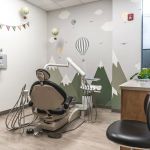How to Deal with a Dental Emergency at Home: Essential Steps and Tips
- 1 - Understanding Dental Emergencies
- 2 - Common Types of Dental Emergencies
- 3 - How to Handle Dental Emergencies at Home
- 4 - When to Seek Professional Help for a Dental Emergency
- 5 - How to Prevent Dental Emergencies
- 6 - Real-Life Examples and Testimonials
1 - Understanding Dental Emergencies
Dental emergencies can happen at any time and often occur unexpectedly. Whether due to an accident, infection, or sudden pain, dental emergencies require immediate attention to prevent further complications. However, not all dental emergencies require a visit to the emergency room or a dentist's office right away. In many cases, you can manage the situation effectively at home until you can see a professional.
It’s essential to understand the different types of dental emergencies and the appropriate steps to take when faced with one. Being prepared and knowing what to do in the event of a dental emergency can help reduce pain, prevent further damage, and keep the situation from worsening until you can receive professional care.
2 - Common Types of Dental Emergencies
Dental emergencies can vary in severity, ranging from minor discomfort to severe pain that requires immediate attention. Some of the most common types of dental emergencies include:
- Toothaches: A toothache can range from mild discomfort to severe, throbbing pain. It’s often caused by cavities, infections, or gum issues. If left untreated, a toothache can lead to more serious problems, including abscesses or even tooth loss.
- Knocked-out Tooth: If you have a tooth knocked out due to an accident or injury, it’s essential to act quickly. Reattaching the tooth is possible if you get to a dentist within an hour of the injury.
- Chipped or Cracked Teeth: A chipped or cracked tooth can be painful and may expose the sensitive interior of the tooth. Depending on the severity, you may need dental bonding, a crown, or other treatments to restore the tooth.
- Lost or Loose Fillings: A lost or loose filling can cause discomfort, especially if it exposes the sensitive part of the tooth. In some cases, temporary fixes can be made until you can visit the dentist.
- Abscesses: An abscess is an infection that can occur at the root of the tooth or between the gums and teeth. It’s often very painful and can lead to more serious health issues if not treated promptly.
Knowing what type of emergency you’re dealing with can help you determine the best course of action, and whether it’s something you can manage at home or if professional care is required immediately.
3 - How to Handle Dental Emergencies at Home
While some dental emergencies require a visit to the dentist or an emergency room, there are several steps you can take at home to manage the situation and relieve pain until you can get professional care:
- For Toothaches: Rinse your mouth with warm water to clean it. Floss gently to remove any debris stuck between your teeth. If the pain persists, apply a cold compress to the outside of your cheek and take over-the-counter pain medication such as ibuprofen or acetaminophen.
- For a Knocked-out Tooth: If your tooth is knocked out, try to find it and handle it by the crown (the part that is normally visible). Rinse it gently with water, but do not scrub it. If possible, place the tooth back into its socket and bite down gently to hold it in place. If that’s not possible, store the tooth in a container of milk or saltwater and see a dentist immediately.
- For Chipped or Cracked Teeth: Rinse your mouth with warm water to clean the area. Apply a cold compress to reduce swelling, and take pain medication if necessary. In cases of severe cracks or if the tooth is sharp and causing injury to your mouth, apply dental wax over the broken edges to protect your gums until you can see a dentist.
- For Lost or Loose Fillings: If a filling comes loose, try to temporarily seal the cavity with dental cement or a piece of sugar-free gum. Avoid chewing on the affected side of your mouth until you can see a dentist for a permanent solution.
- For Abscesses: An abscess is an infection, and it’s important to manage the pain and prevent it from spreading. Rinse your mouth with warm salt water several times a day to reduce inflammation and help clear out any infection. Take over-the-counter pain medication as directed, and avoid hot or cold foods that may exacerbate the pain.
While these home remedies can help manage pain and reduce the risk of complications, it's important to follow up with a dentist for proper treatment.
4 - When to Seek Professional Help for a Dental Emergency
While many dental emergencies can be managed at home, there are times when it’s crucial to seek immediate professional care. If you experience any of the following situations, contact a dentist or go to an emergency room as soon as possible:
- Severe Pain: If you experience intense, unrelenting pain, it may indicate a serious issue such as an infection, abscess, or fractured tooth that requires immediate attention.
- Heavy Bleeding: If your mouth is bleeding excessively, especially after an injury, it’s important to seek professional help right away. Severe bleeding may be a sign of a deep wound or serious damage to the tooth or gums.
- Inability to Save a Knocked-out Tooth: If you’re unable to reinsert a knocked-out tooth within an hour or store it properly for transport, visit a dentist immediately. Time is crucial in saving the tooth.
- Infections or Abscesses: An abscess or infection in your mouth can spread rapidly and cause serious health complications. If you notice signs of swelling, fever, or difficulty swallowing, seek professional care immediately.
Early intervention is critical in preventing long-term damage, so don’t hesitate to seek help if you’re in doubt about the severity of your dental emergency.
5 - How to Prevent Dental Emergencies
While you can’t always predict when a dental emergency will happen, there are steps you can take to minimize the risk of common dental issues:
- Maintain Regular Dental Checkups: Seeing a dentist regularly for checkups and cleanings is one of the best ways to catch potential problems before they become emergencies. Your dentist can identify issues like cavities or gum disease early on and provide preventive treatments.
- Wear a Mouthguard: If you play contact sports or grind your teeth at night, consider wearing a custom mouthguard to protect your teeth from injury or damage.
- Practice Good Oral Hygiene: Brushing twice a day and flossing daily can help prevent cavities, gum disease, and other issues that can lead to emergencies. Using fluoride toothpaste and visiting your dentist for professional cleanings can also help protect your oral health.
- Avoid Hard or Sticky Foods: Chewing hard candies, ice, or sticky foods can damage your teeth, leading to chips or fractures. Being mindful of what you eat can reduce the risk of dental emergencies.
By taking care of your teeth and gums and following these preventive measures, you can reduce the likelihood of needing emergency dental care in the future.
6 - Real-Life Examples and Testimonials
In one case, a woman found herself in the midst of a dental emergency when she accidentally bit down on a hard piece of candy and cracked a tooth. Thanks to a quick-thinking relative who provided her with temporary dental wax, she was able to manage the discomfort until she could get an appointment with her dentist. In another example, a man who had a severe toothache discovered that it was caused by an infected tooth. After rinsing with salt water and taking pain medication, he sought professional care, which ultimately saved him from a more serious issue like a tooth abscess.
These real-life stories show the importance of being prepared for dental emergencies and knowing what to do in the moment. Whether it’s managing pain at home or knowing when to seek professional help, the right response can make a significant difference in the outcome of a dental emergency.
For more information on how to handle dental emergencies and to find helpful dental products, visit Dentistry Toothtruth for expert advice and recommendations.







 Cuozzo Orthodontic Specialists4.0 (18 review)
Cuozzo Orthodontic Specialists4.0 (18 review) McCabe Orthodontics4.0 (14 review)
McCabe Orthodontics4.0 (14 review) Steven J. Moravec, DDS, MS4.0 (189 review)
Steven J. Moravec, DDS, MS4.0 (189 review) RVA Dental Care4.0 (590 review)
RVA Dental Care4.0 (590 review) Heine & Associates Family Dentistry5.0 (705 review)
Heine & Associates Family Dentistry5.0 (705 review) Children's Dentistry of Maine3.0 (23 review)
Children's Dentistry of Maine3.0 (23 review) The Importance of Oral Health Education During Pregnancy for a Healthy Pregnancy
The Importance of Oral Health Education During Pregnancy for a Healthy Pregnancy Best Tips for Brushing Your Teeth Properly for Healthy Gums: Essential Techniques for Oral Health
Best Tips for Brushing Your Teeth Properly for Healthy Gums: Essential Techniques for Oral Health Why Skipping Dental Checkups Can Lead to Bigger Oral Health Problems
Why Skipping Dental Checkups Can Lead to Bigger Oral Health Problems Advantages of Porcelain Dental Restorations
Advantages of Porcelain Dental Restorations How Can Diabetes Cause Tooth and Gum Problems? Preventing and Managing Oral Health Issues
How Can Diabetes Cause Tooth and Gum Problems? Preventing and Managing Oral Health Issues Healthy Habits for Promoting Good Oral Health and Hygiene: Tips for a Healthy Smile
Healthy Habits for Promoting Good Oral Health and Hygiene: Tips for a Healthy Smile